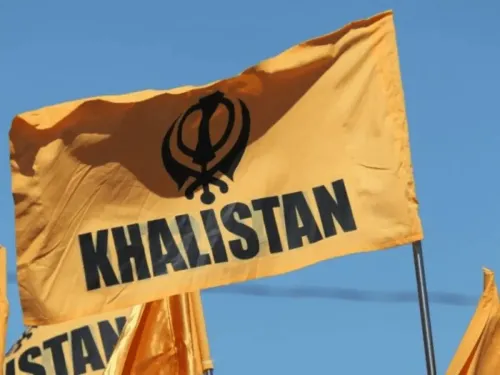Does the US Truly Want War? Insights from Defense Experts on the Iran-Israel Ceasefire

Synopsis
Key Takeaways
- The US does not seek war in the Middle East and aims for a ceasefire.
- Historical tensions between Iran and Israel complicate peace efforts.
- The ceasefire's enforcement is still in question.
- Both nations have a history of mistrust that could jeopardize the truce.
- US involvement as a mediator is crucial for ongoing peace efforts.
New Delhi, June 24 (NationPress) Following the confirmation from Israeli Prime Minister Benjamin Netanyahu regarding Israel's acceptance of a ceasefire proposal with Iran, defense analysts have offered insights into the ramifications of this decision, asserting that it clearly indicates the United States is not seeking a large-scale war in the region.
In an interview with IANS, Colonel Shivdan Singh (Retired) expressed, "The United States is acting as a mediator in this discord. The real conflict lies between Iran and Israel, which has been escalating for years. This silent conflict has now become public. For instance, on October 7, 2023, Hamas launched an unexpected missile attack and took civilians hostage, further heightening tensions."
He elaborated, "Hamas is a terrorist organization supported by Iran. Likewise, Hezbollah — another proxy group — was established by Iran and has conducted attacks against Israel from Yemen. This conflict is not isolated but rather multi-faceted with deep-rooted historical context. Essentially, Israel has been under siege for the past three years."
Colonel Singh provided historical background: "Israel was established in 1948 after Jews were expelled from several Arab countries, including Egypt. They united to create a new nation. Surrounded by enemies, Israel has continuously defended itself. Despite its small size and isolation, it has consistently thwarted assaults from hostile neighbors, driven by a resolute survival instinct."
Regarding the ongoing ceasefire, he noted, "The truce was proclaimed by the United States, which sees itself as a superpower. However, Iran has not accepted the ceasefire under those conditions. While the US announced it, its enforcement remains uncertain. Iran retaliated against American actions, and Israel responded similarly. If the US is genuinely committed to this ceasefire, it must engage both parties — Israel and those with influence over Iran."
Further commenting, defense expert GJ Singh remarked, "It is abundantly clear that the US does not desire war. After dismantling Iran's nuclear sites, America chose to remain silent. Even when Iran retaliated by attacking Qatar, Washington did not respond. Now, with a ceasefire in place, there is a concerted effort to de-escalate tensions."
However, Singh cautioned, "The relationship between Iran and Israel is fraught with deep mistrust. While a ceasefire may be declared, the challenge lies in its implementation. This is a precarious moment. Time will tell if this ceasefire endures, and it remains uncertain which side might breach it next."
Meanwhile, on Tuesday, Israeli Prime Minister Netanyahu officially confirmed Israel's acceptance of the ceasefire proposal, temporarily halting 12 days of fierce hostilities between the two regional rivals.
In a formal statement from the Prime Minister's Office, Netanyahu declared that Israel had not only met but exceeded its military objectives under Operation Rising Lion.
"Israel has neutralized a dual existential threat — both nuclear and ballistic. We have far surpassed our goals. Our national security is stronger than ever," the statement asserted.
However, shortly after the announcement, tensions escalated, with Israeli authorities reporting incoming missiles from Iran, a violation of the freshly agreed ceasefire.
In retaliation, Israeli Defense Minister Israel Katz directed the military to target "strategic positions" in Tehran, stating that Iran's breach of the ceasefire would provoke "forceful retaliation." Air raid sirens sounded across northern Israeli towns, including Haifa, as the Israeli missile defense system intercepted the alleged threats, with no casualties or property damage reported.
Iran, however, denied any allegations of launching missiles post-ceasefire. The semi-official Tasnim news agency stated that Iran had "not violated any truce" and was adhering to peaceful terms.
Amid this turmoil, US President Donald Trump issued a stern warning to both parties, criticizing them for heightening tensions despite the ceasefire.
"They need to calm down. This is absurd," Trump remarked during a press briefing in Washington, shortly before departing for the NATO summit in The Hague.
"I was not pleased with what transpired yesterday. Israel conducted a large bombing run right after we reached the agreement. That was not the deal. Then Iran, of course, retaliated harshly. Both sides violated the truce before the ink was even dry," Trump stated.
He emphasized, "Maintaining peace in the Middle East is a top priority for the US. Yet, my comments reflect disappointment with both Israeli and Iranian leaders for undermining American diplomatic efforts."









